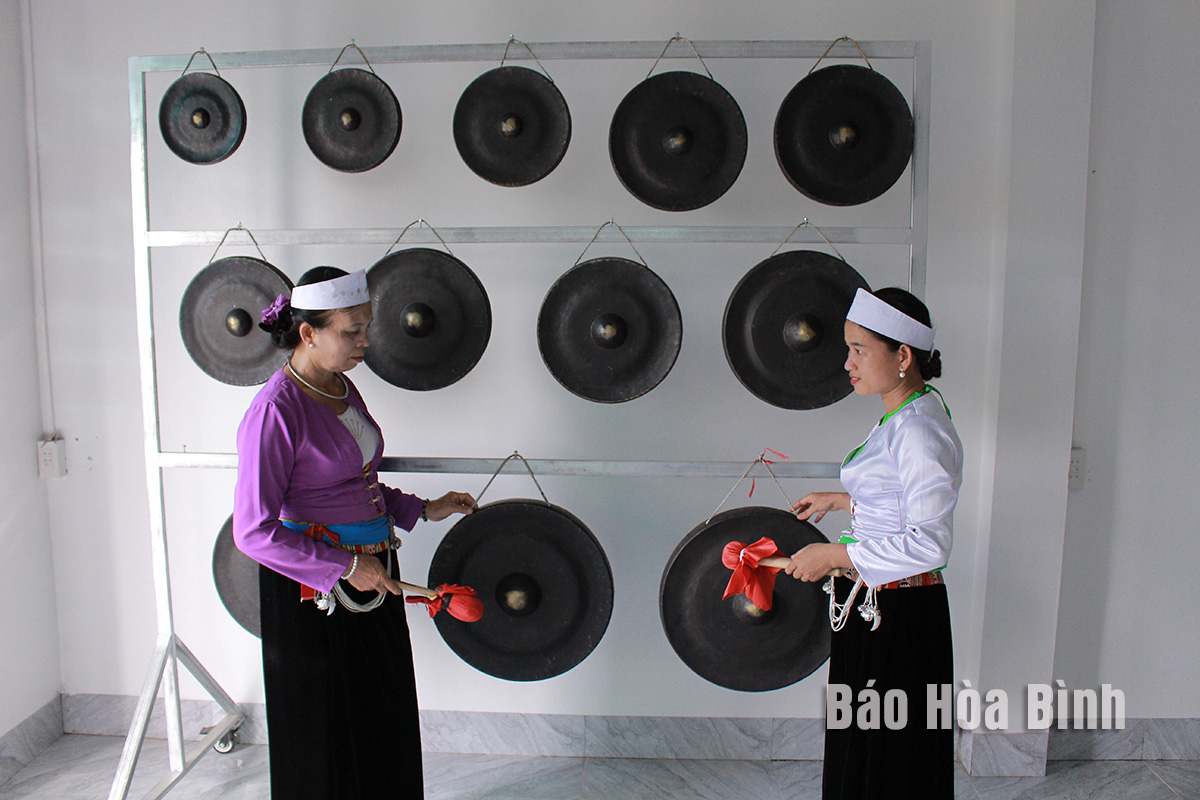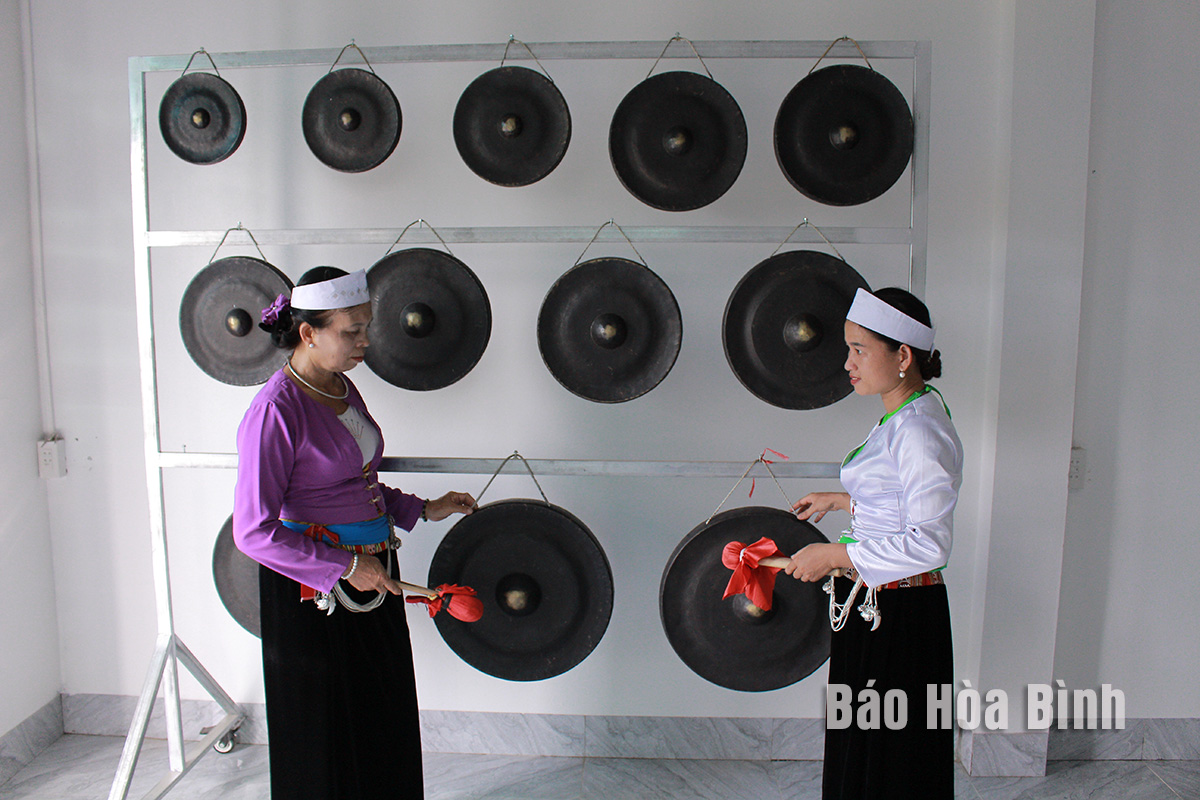
Lac Thinh commune, Yen Thuy district, is home to 1,635 households, of which 82% are ethnic minorities, mainly Muong people. In recent years, the commune has prioritised to developing cultural clubs, aiming to both enrich the community's spiritual life and preserve traditional cultural values.
Artist Quach Thi Kieu (left) guides and teaches Muong gong playing techniques to club members.
With the view that "people stay alive when their culture
stay alive,the local authorities have paid heed to preserving and promoting
the Muong folk cultural identity. In this spirit, the Women's Union of Lac
Thinh commune has encouraged residents to wear traditional Muong attire during
festivals and community events. They also established two cultural preservation
clubs in Trac and Dinh Van hamlets.
With 31 members when founded in 2021, the Trac hamlet club now has 49,
including both male and female artisans. It maintains practices of traditional
Muong music, dance, and cultural performances every Saturday and Sunday. These
activities have garnered attention from professional units at district and
provincial levels. The club has been invited to participate in numerous
cultural exchanges and festivals, including performances for Vietnam's national
television.
Quach Thi Kieu, head of the Trac hamlet club, explained that members are taught
to play traditional Muong instruments, sing folk songs, and perform Muong
dances. The club also holds workshops on traditional brocade weaving and the
significance of traditional Muong clothing.
In November 2022, recognising the success of the Trac hamlet club, the communal
Women's Union established anotherclub in Dinh Van hamlet, with 45
members. The club has been actively involved in local cultural exchanges,
festivals, and workshops, helping to preserve and promote Muog traditions.
The establishment and development of the club model are of significance in
preserving and promoting the cultural heritage value, thus creating best
possible conditions for ethnic people to directly engage in protection and
promotion as well as enjoy results of these activities. foster a sense of
community, ensuring that cultural traditions are passed down to future
generations.
With an increasingly vibrant and widespread emulation movement aimed at building cultured residential areas and cultured families, Yen Thuy District has been making steady progress toward improving both the material and spiritual well-being of its people, while fostering a civilized, prosperous, beautiful, and progressive community.
Once lacking recreational spaces and community facilities, Residential Group 2 in Quynh Lam Ward (Hoa Binh City) has recently received attention for the construction of a new, spacious, and fully equipped cultural house. The project followed the model of state support combined with public contributions in both labor and funding.
The "All people unite to build cultural life" movement, which has been effectively integrated with Kim Boi district’s socio-economic development goals, is fostering a lively spirit of emulation across local residential areas, hamlets, villages, public agencies, and enterprises. In addition, through the initiative, traditional cultural values are being preserved and promoted, while community solidarity and mutual support in poverty reduction and economic development are being strengthened.
A working delegation of the Hoa Binh provincial People’s Committee led by its Permanent Vice Chairman Nguyen Van Toan on June 11 inspected the progress of a project to build the Mo Muong Cultural Heritage Conservation Space linked to tourism services in Hop Phong commune, Cao Phong district.
Born and growing in the heroic land of Muong Dong, Dinh Thi Kieu Dung, a resident in Bo town of Kim Boi district, in her childhood was nurtured by the sweet lullabies of her grandmother and mother. These melodies deeply imprinted on her soul, becoming an inseparable part of her love for her ethnic group's culture. For over 20 years, this love for her hometown has driven Dung to research, collect, and pass down the cultural values of the Muong people to future generations.
In the final days of May, the Ethnic Art Troupe of Hoa Binh Province organized performances to serve the people in remote, mountainous, and particularly disadvantaged areas within the province. These were not just ordinary artistic shows, but they were the meaningful journeys aimed at spreading cultural values, enhancing the spiritual life of the people and contributing to the preservation of ethnic minority cultural identities.



